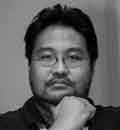MY former professor in history, Dr. Jaime Veneracion, once told me, “the best way to learn about anything you do not know is to teach it.” That reminded me to be open to talking about many things provided I have time to read up. In a few days, I will be teaching for the first time Comm 140 (Media and Society) at the UP Department of Broadcast Communication. I am excited to explore the many examples of how the press and broadcasting have created public attitudes, which eventually helped shape historical events.
In our history textbooks, it is recognized that the journalistic profession helped create the nation. We studied about how the Propaganda organ, La Solidaridad, not only advocated for reforming Filipino society under colonialism, but it also became the vehicle for cultural studies and debates that eventually defined the Filipino identity. We read about how the Katipunan organ, Kalayaan, increased the Katipunan membership from 300 to 30,000, according to its managing editor Pio Valenzuela. We are also familiar with Antonio Luna’s La Independencia, which was the organ of the Philippine Revolution, and El Heraldo de la Revolucion, which served as the official gazette of the Aguinaldo government. But rarely have we read about Filipinas Ante Europa.
Continue reading with one of these options:
Ad-free access
P 80 per month
(billed annually at P 960)
- Unlimited ad-free access to website articles
- Limited offer: Subscribe today and get digital edition access for free (accessible with up to 3 devices)


